MercoPress. South Atlantic News Agency
Tag: Krill
-
Friday, July 22nd 2022 - 08:46 UTC
Krill surveys in South Georgia conducted by fishery patrol MV Pharos SG
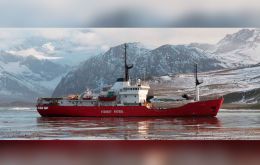
The second of six winter krill surveys in South Georgia and the South Sandwich Islands is underway. The first winter krill survey was completed successfully on board the South Georgia and South Sandwich Islands fishery patrol vessel MV Pharos SG in May this year.
-
Tuesday, January 22nd 2019 - 08:50 UTC
Krill retreating towards Antarctica because of climate change
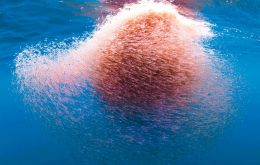
A keystone prey species in the Southern Ocean is retreating towards the Antarctic because of climate change. Krill are small, shrimp-like creatures that swarm in vast numbers and form a major part of the diets of whales, penguins, seabirds, seals and fish. Scientists say warming conditions in recent decades have led to the krill contracting pole-ward.
-
Monday, January 22nd 2018 - 09:30 UTC
Australian scientists attempting a krill “census” based on the “sound” of the species
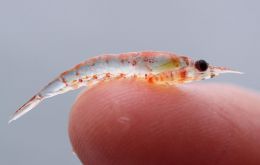
A team of Antarctic scientists hopes that an experiment to capture the “sound” of a single krill will help determine how many individuals of this key Antarctic species are swimming in the Southern Ocean. Researchers from the Australian Antarctic Division (AAD) are using echo sounder technology to record the sound of krill specimens of different sizes over a range of frequencies.
-
Wednesday, March 18th 2015 - 13:17 UTC
First call for proposals from Antarctic Wildlife Research Fund
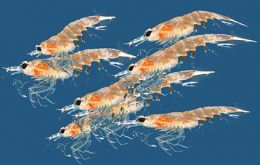
The Antarctic Wildlife Research Fund (AWR) issued this week its first call for proposals, inviting applications from scientific researchers who can aid in determining the impact of the krill fishing industry on the Antarctic marine ecosystem. Such research will serve to ensure ecosystem protection, while improving the management basis for the fishery.
-
Monday, January 13th 2014 - 06:17 UTC
South Georgia will issue two-year licenses for toothfish and icefish
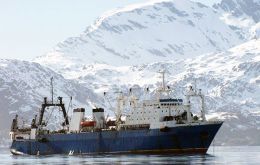
The government of South Georgia and South Sandwich Islands has announced it will issue two-year fishing licenses to companies who successfully apply to fish for toothfish and icefish in the SGSSI Maritime Zone, reports the South Georgia Newsletter latest edition.
-
Friday, September 27th 2013 - 21:33 UTC
South Georgia krill could suffer most global warming according to BAS
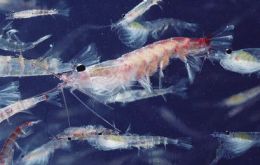
Modelling of the effects of sea temperature rises in the Southern Oceans indicates that krill in the seas around South Georgia may be the hardest hit of the region by the effects of global warming, reports the August edition of the South Georgia Newsletter.
-
Monday, August 26th 2013 - 08:25 UTC
Rising sea temperature will reduce krill growth habitat in Antarctica

Antarctic krill are usually less than 6 cm in length, but their size belies the major role they play in sustaining much of the life in the Southern Ocean. They are the primary food source for many species of whales, seals, penguins and fish.
-
Tuesday, October 23rd 2012 - 07:18 UTC
South Georgia plans to expand Marine Protected Areas; could affect krill fishery
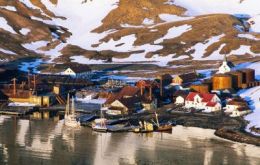
The government of South Georgia and South Sandwich Islands, GSGSSI, announced a vast Marine Protected Areas around the Island in February and it is likely there is more protection to come that could affect krill fishing and long-lining, reports the September edition of the South Georgia newsletter.
-
Saturday, September 15th 2012 - 06:01 UTC
One longliner and four krill trawlers fishing in South Georgia

Only one longliner remained fishing in South Georgia waters at the end of the season on August 31. Four longliners were fishing at the start of August, but just one remained to complete its allotted fish quota. The others completed their TAC at various times through the month then sailed for the Falkland Islands for catch verification.
-
Monday, July 9th 2012 - 17:55 UTC
Norwegian company completes most successful Antarctic krill season
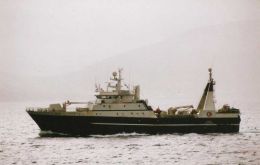
Olympic Seafood AS has announced that its vessel ‘Juvel’ has recently completed its most successful Antarctic krill season ever, with record efficiency and a catch of the utmost quality.
